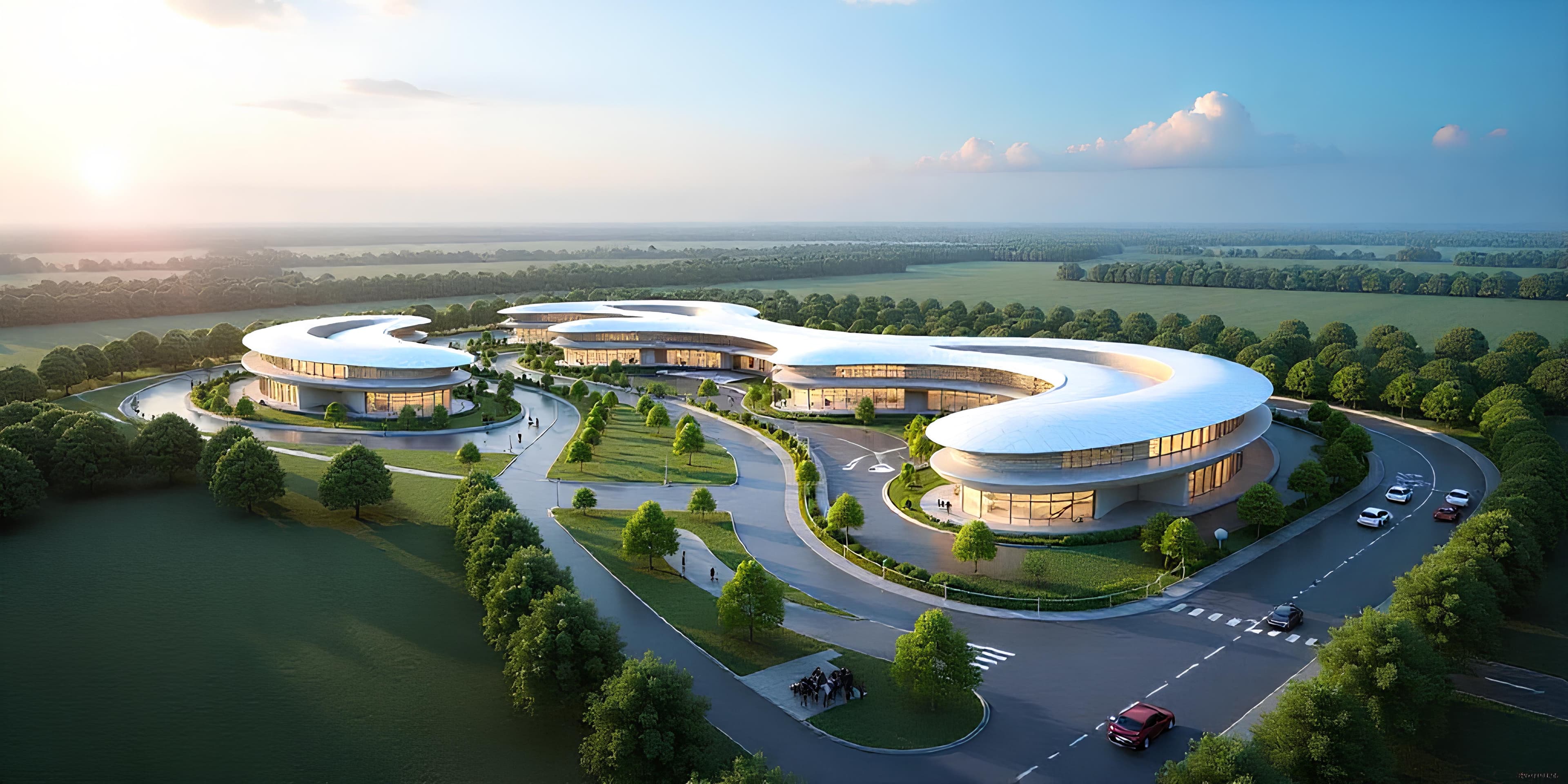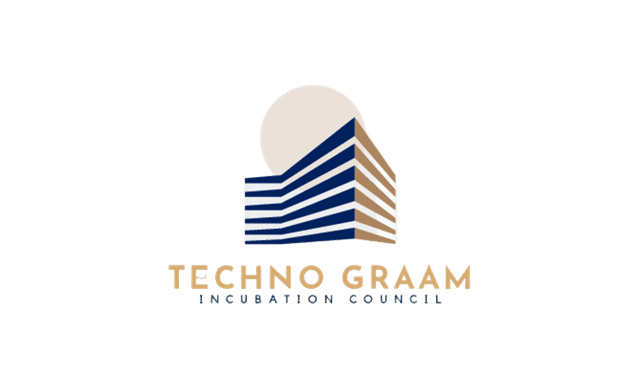
Innovation Zones: Center of Excellences
The Nano Technology Innovation Centre at the Alwar IT Cybercity will be a cutting-edge research and development facility dedicated to exploring the limitless potential of nanotechnology across diverse sectors such as healthcare, electronics, energy, materials science, and environmental sustainability. This state-of-the-art center, spread over 10 acres, will position India at the forefront of global nanotechnology innovation. The center aims to drive breakthroughs in nanomaterials, nanodevices, and nanofabrication, enabling the development of next-generation technologies that address both industrial and societal challenges.

To establish a world-class hub for nanotechnology research, development, and commercialization, fostering interdisciplinary innovation that revolutionizes industries and improves quality of life globally through advanced nanomaterials and applications.
1. Advanced Nanomaterials:
Research and develop novel nanomaterials, including carbon nanotubes, graphene, quantum dots, and nanoparticles, for applications in sectors such as electronics, energy, biomedicine, and aerospace
Innovate in the field of smart materials, such as self-healing polymers and responsive nanomaterials, to create intelligent products that adapt to environmental conditions.
Develop nanocomposites that combine the properties of different materials to create stronger, lighter, and more durable solutions for industries like construction, automotive, and defense.
Collaborate with industry leaders to accelerate the development of nanomaterials for electronics miniaturization, enhancing the performance of devices and reducing energy consumption.
2. Nanoelectronics and Nanosensors:
Drive research in nanoelectronics, focusing on the development of miniaturized electronic devices and circuits, leading to faster, more efficient, and power-saving electronics.
Innovate in nanosensors for applications such as environmental monitoring, health diagnostics, and industrial automation. These sensors can detect and respond to minute changes in physical, chemical, or biological conditions.
Collaborate with the electronics and semiconductor industries to integrate nanotechnology into next-generation chips, enabling higher performance in devices such as smartphones, computers, and AI systems.
Research into flexible electronics and wearable technology powered by nanoelectronics, enabling new innovations in healthcare, fashion, and entertainment.
3. Biomedical Applications and Nanomedicine:
Innovate in the field of nanomedicine, developing nanoparticles for targeted drug delivery, enabling precise treatment of diseases like cancer, cardiovascular diseases, and neurological disorders with minimal side effects.
Research biosensors and nanodiagnostic devices that allow real-time health monitoring and early detection of diseases at the molecular level, transforming healthcare systems.
Explore the use of nanotechnology in tissue engineering and regenerative medicine, developing biomaterials that enhance the body’s natural healing processes.
Collaborate with pharmaceutical companies to develop nano-based drug formulations that improve the bioavailability and efficacy of existing drugs.
4. Energy and Environmental Nanotechnology:
Develop nanomaterials for energy storage and conversion, such as nanostructured batteries, supercapacitors, and fuel cells, to enhance the efficiency of renewable energy systems.
Innovate in solar energy technologies, such as nanophotovoltaics, to create more efficient and cost-effective solar panels, contributing to India’s renewable energy goals.
Explore the potential of nanotechnology in water purification and wastewater treatment, developing nanomembranes and nanosorbents that remove contaminants and pollutants at the molecular level.
Focus on the development of nanotechnology-based air filters to address urban air pollution challenges and improve air quality in densely populated regions.
Collaborate with the automotive and aerospace industries to integrate lightweight nanomaterials into vehicles, reducing fuel consumption and emissions.
5. Nanofabrication and Manufacturing:
Establish a state-of-the-art nanofabrication laboratory, enabling the development and large-scale production of nanodevices and nanomaterials for industrial applications.
Research and develop new methods of nanomanufacturing, including top-down lithography and bottom-up self-assembly, to create complex nanostructures with precision and scalability.
Collaborate with manufacturing industries to develop nanocoatings and surface engineering solutions that enhance product durability, corrosion resistance, and thermal properties.
Drive research into nano-enabled manufacturing processes for sectors such as electronics, energy, and healthcare, improving efficiency and reducing material waste.
6. Quantum Nanotechnology:
Explore the intersection of nanotechnology and quantum computing, developing quantum dots and nanoqubits that advance the potential of quantum devices and enhance computational capabilities.
Collaborate with leading research institutions to develop quantum sensors and quantum communication systems, enhancing security and precision in communication technologies.
Focus on quantum nanophotonics to create ultrafast optical devices, opening new frontiers in computing, telecommunications, and imaging.
7. Agriculture and Food Nanotechnology:
Innovate in the field of agricultural nanotechnology, developing nanofertilizers and nanosensors for precision farming, improving crop yields while minimizing the environmental impact.
Research nanoencapsulation technologies to enhance the delivery and efficacy of pesticides, fertilizers, and nutrients in agriculture.
Develop nano-based food packaging solutions that increase shelf life, reduce food spoilage, and improve food safety by preventing contamination.
Collaborate with the food industry to develop functional foods and nutraceuticals using nanocarriers, which enhance the bioavailability of essential nutrients.
8. Skill Development and Capacity Building:
Establish an education and training center focused on nanotechnology research and applications, offering advanced courses, workshops, and certifications for students, researchers, and professionals.
Collaborate with universities, research institutions, and industry leaders to foster a strong talent pool for nanotechnology, equipping young scientists and engineers with the skills needed to drive future innovations.
Create internship and exchange programs that allow students and researchers to collaborate with global nanotechnology leaders and gain exposure to cutting-edge research and development.
8. Skill Development and Capacity Building:
Establish an education and training center focused on nanotechnology research and applications, offering advanced courses, workshops, and certifications for students, researchers, and professionals.
Collaborate with universities, research institutions, and industry leaders to foster a strong talent pool for nanotechnology, equipping young scientists and engineers with the skills needed to drive future innovations.
Create internship and exchange programs that allow students and researchers to collaborate with global nanotechnology leaders and gain exposure to cutting-edge research and development.
9. Collaboration with Industry and Academia:
Build strong partnerships with global nanotechnology leaders, industry partners, and academic institutions to drive the commercialization of nanotechnology innovations and scale them to global markets.
Establish a technology transfer office that facilitates collaboration between researchers and industries, ensuring that nano-based technologies are brought from lab to market.
Foster an incubation center for nanotechnology startups, providing mentorship, funding, and access to research facilities to accelerate the development of innovative products and solutions.
10. Intellectual Property and Technology Commercialization:
Focus on protecting intellectual property (IP) through patents and licensing agreements for the commercialization of nanotechnology innovations.
Collaborate with industry to commercialize innovations in fields such as electronics, healthcare, and energy, driving economic growth and technological leadership in India.
Develop strategies for scaling nano-based technologies, ensuring their practical applications across a wide range of industries, both domestically and globally.
The Nano Technology Innovation Centre at Alwar IT Cybercity will play a transformative role in advancing India’s position in the global nanotechnology landscape. By focusing on research, development, and commercialization across sectors such as healthcare, energy, electronics, and environmental sustainability, the center will catalyze industrial growth and address critical societal challenges. The integration of nanotechnology into India’s innovation ecosystem will not only enhance the country's scientific capabilities but also promote economic self-reliance and global competitiveness. The center will foster collaboration between academia, industry, and government, ensuring that the full potential of nanotechnology is realized for the benefit of society and industry alike.
